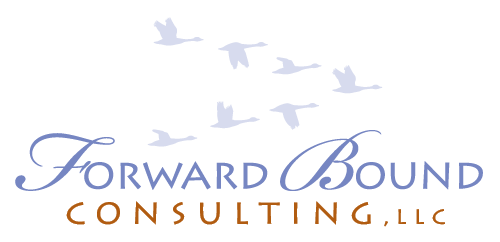Is there a right way to fight?
One meaning of “fight” is a violent confrontation or struggle. In a “war”, there are winners and losers. When in disagreement with someone, we often view the winner as being right and the loser as being wrong and we want to be the “winner”! Winning the fight is not an advantageous goal in healthy relationships. Conflict is inevitable in meaningful relationships, but fighting is optional. Whether delivered calmly and quietly or sarcastically in a loud screaming voice, the approaches commonly used in “battles” with those we have bonds with are toxic to the relationships. These include blaming, shaming, criticizing, accusing, assassination of character, threatening, name calling, stonewalling, blindly defending ourselves, justifying, cursing and yelling. By the way… when we yell, we are not heard!
When inevitable conflicts arise, the aspiration for each of us should be to deal with conflict respectfully and work together to find a workable solution/resolution. It may be hard to grasp or imagine, but no one needs to treat another dreadfully or behave dreadfully to resolve disagreement. In contrast to the deferential way we tend to treat co-workers, friends, extended family members and acquaintances, we often speak unkind words and display horrible behaviors around those who we are closest to. Perhaps we do so because we feel safe and know we have their unconditional love. That may be true, but it does not mean that the toxic words and behaviors we hurl at one another are not terribly destructive. Over time, they can lead to a complete disconnect.
Everyone’s feelings have value, not just our own. When we are so blinded by the need to win or be right, we tune out the importance of being in right relationship with others and we forget how essential mutual respect is for maintaining healthy relationships.
Anger, which usually precedes a fight, likely stems from feeling hurt, misunderstood, unsupported, unappreciated, etc. These feelings are valid and need to be dealt with. Creating agreements and boundaries around how you want to be with each other is a good way to keep your relationships healthy and secure. By doing this together, you can have a deeper understanding of the type of relationships that you want. Setting boundaries should not make anyone feel like they can’t be themselves or like they are “walking on eggshells”; moreover, they clarify tolerance levels as far as what we are comfortable and uncomfortable with. Brene Brown, author and researcher suggests, “…we can be compassionate and accepting while holding people accountable for their behaviors.” and also, “When we fail to set boundaries and hold people accountable, we feel used and mistreated. This is why we sometimes attack who they are, which is far more hurtful than addressing a behavior or choice”. We are all creatures of habit and may need to be gently reminded if and when we cross boundaries.
Relationships that are healthy are based equality and respect, not power and control. It is possible to set healthy boundaries, state our needs and express our emotions (fear, frustration, guilt, shame, hurt, etc.) without creating a hostile and toxic environment.
In the heat of a moment, it is very hard to make good choices and it takes patience and time to learn new skills. As with any habit, we need to create new neural pathways in the brain in order to change the way we handle conflict.
Before your next “fight”, consider:
- Being willing to compromise and solve conflicts in a fair and rational way. It is not very rewarding to win the fight if we are all alone in the celebrating!
- Letting go being right and making others wrong.
- Softening up before getting into it! Dr. John Gottman suggests “soft start-ups” in his book, The Seven Principles For Making Marriage Work. These work with everyone, not just married couples!
- Being supportive and respectful with your words, tone, gestures and body language. Mimicking and sneering are just as toxic as the loudest “F-bomb”!
- Letting go of focus on irritants. Show some admiration for what others do right. Healthy relationships are about building each other up, not putting each other down.
- Offering appreciation, reassurance and encouragement when others own their behaviors, acknowledge your feelings and/or show willingness to compromise.
- Hearing constructive criticism without becoming defensive
- Rephrasing anything that is perceived as hurtful, contemptuous, blaming or shaming.
- Clarify what you are hearing/mirroring (e.g. “So what I hear you saying is…).
- Softening up before getting into it! Dr. John Gottman suggests “soft start-ups” in his book, The Seven Principles For Making Marriage Work. These work with everyone, not just married couples! Conversations and altercations almost inevitably end with the same tone they begin with.
Note: Have patience for any mental health issues that may be impacting others’ behaviors that arise during conflict, while simultaneously offering encouragement and support of them seeking or receiving treatment. Hurling labels and accusations at someone who needs professional help will likely bring on defensiveness and shame and possibly deter them from seeking it. Individuals may need to work on their relationship with “self” before being in right relationship with others.
